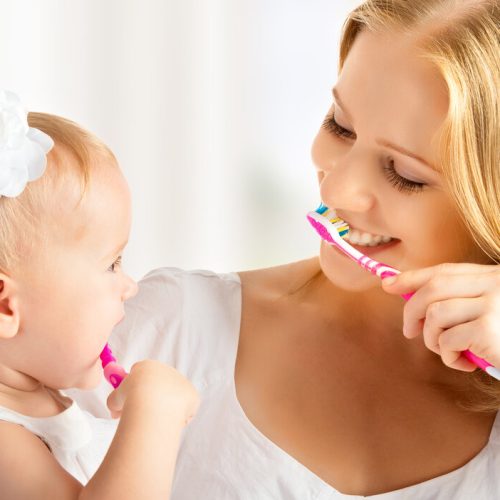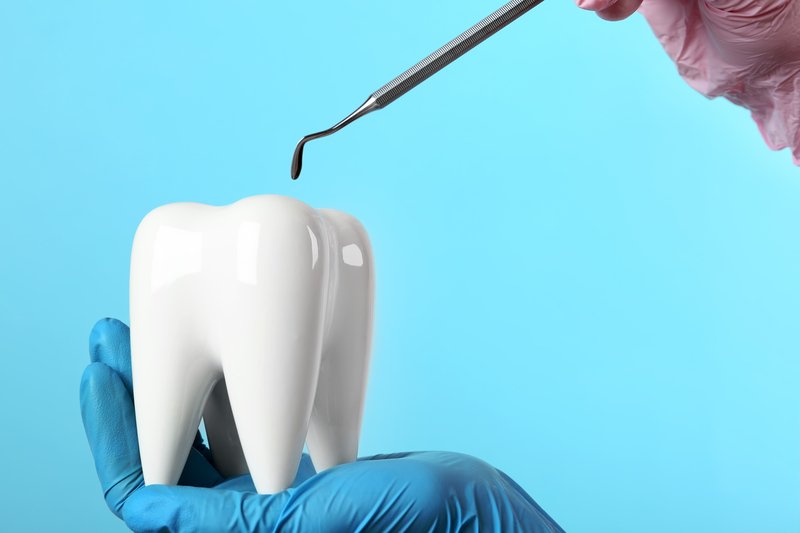Caring for a baby is a never-ending process. From dealing with fussiness to diaper changes to constant feedings, you may be feeling overwhelmed. As a busy parent, you may neglect to add something else to your schedule: your child’s first dental visit.
Going to the dentist may be the last thing on your mind right now, especially if you’re not too fond of dental visits yourself. However, starting a dental routine early on can be beneficial for your child and help prevent issues with the mouth later in life.
A Child’s First Dental Visit: What Age?
So at what age should your child’s first dental visit be? The American Dental Association recommends babies see the dentist by their first birthday, or six months after the first tooth comes in—whichever comes first. After that initial visit, you should schedule visits every six months or perhaps more often if the dentist recommends it.
Seeing the dentist at the age of one may seem very young, but this visit will allow the dentist to assess your child’s oral habits and help identify any dental needs. Plus, the dentist can be a scary place for some children, so regular dentist visits at an early age will make your child feel more comfortable.
What Will Happen at Your Child’s First Dental Visit?
At the first visit, the dentist will demonstrate how parents can brush and floss their child’s teeth. They will also discuss how to prevent decay since a child is at risk as soon as the first tooth comes in.
The dentist will look at any teeth that have erupted and clean any that appear to be stained. He or she will also discuss drinking and eating habits. Using a baby bottle or sippy cup is associated with a higher risk of cavities, so the dentist will discuss ways to keep teeth healthy.
Another important topic is fluoride intake. Too much fluoride can be harmful, but too little fluoride can lead to tooth decay. In most cases, the dentist will apply fluoride to the teeth at this initial appointment.
At your child’s first dental visit, the dentist will also discuss habits and issues such as:
-
Pacifier use. While a pacifier may calm your fussy baby, prolonged use can affect the teeth and mouth, causing alignment issues.
-
Thumb sucking. If your child sucks their thumb, they may also develop alignment issues as well as gaps between their front teeth.
-
Teething. Every baby goes through teething, but it can cause drooling, irritability, and sleeping problems. Your dentist can help alleviate these symptoms.
Contact Us Today
Your child’s first dental visit is essential, even if you think it might be too soon. Your child is never too young to start good dental habits. Contact Showtime Smiles to make an appointment.



